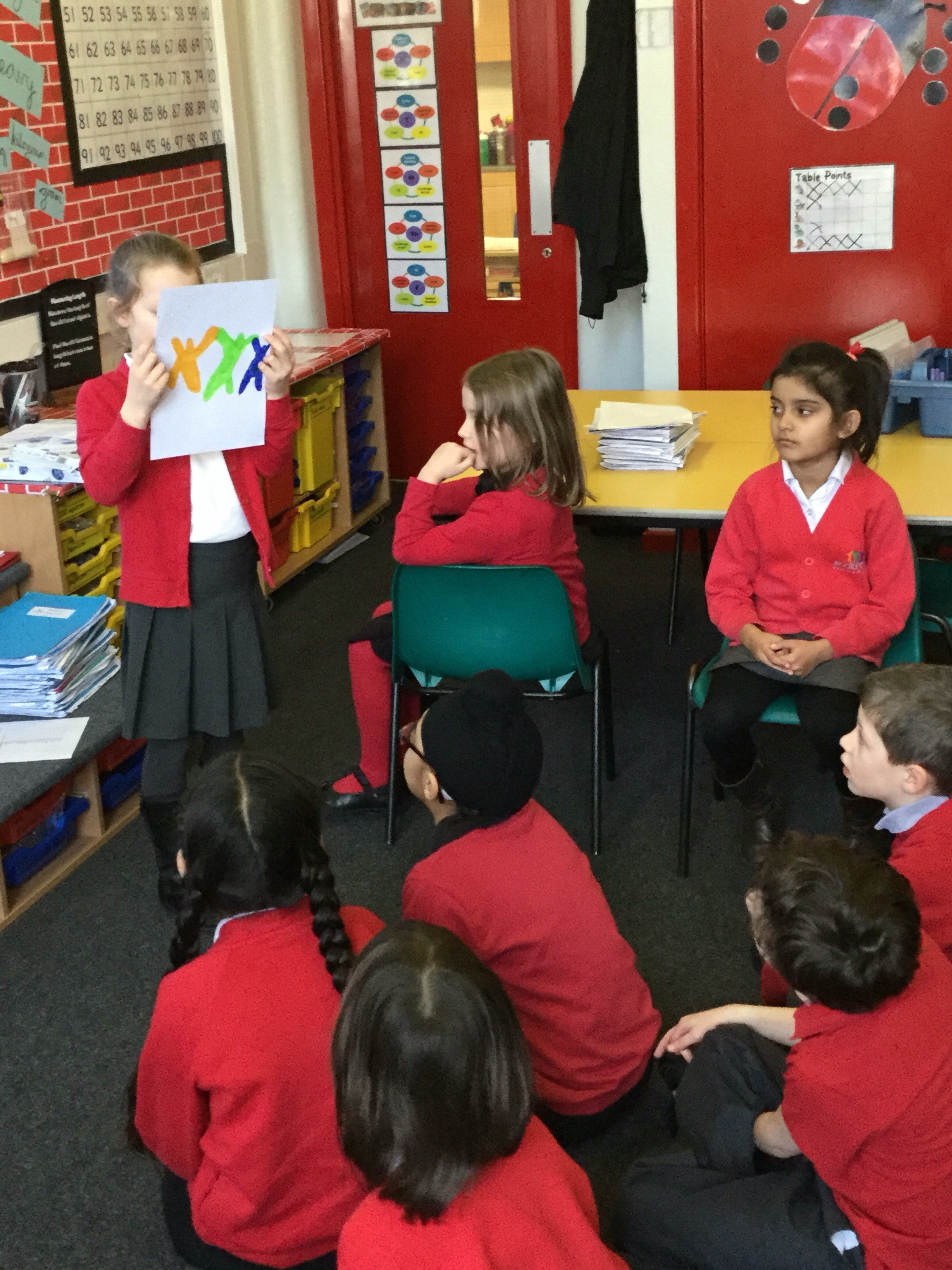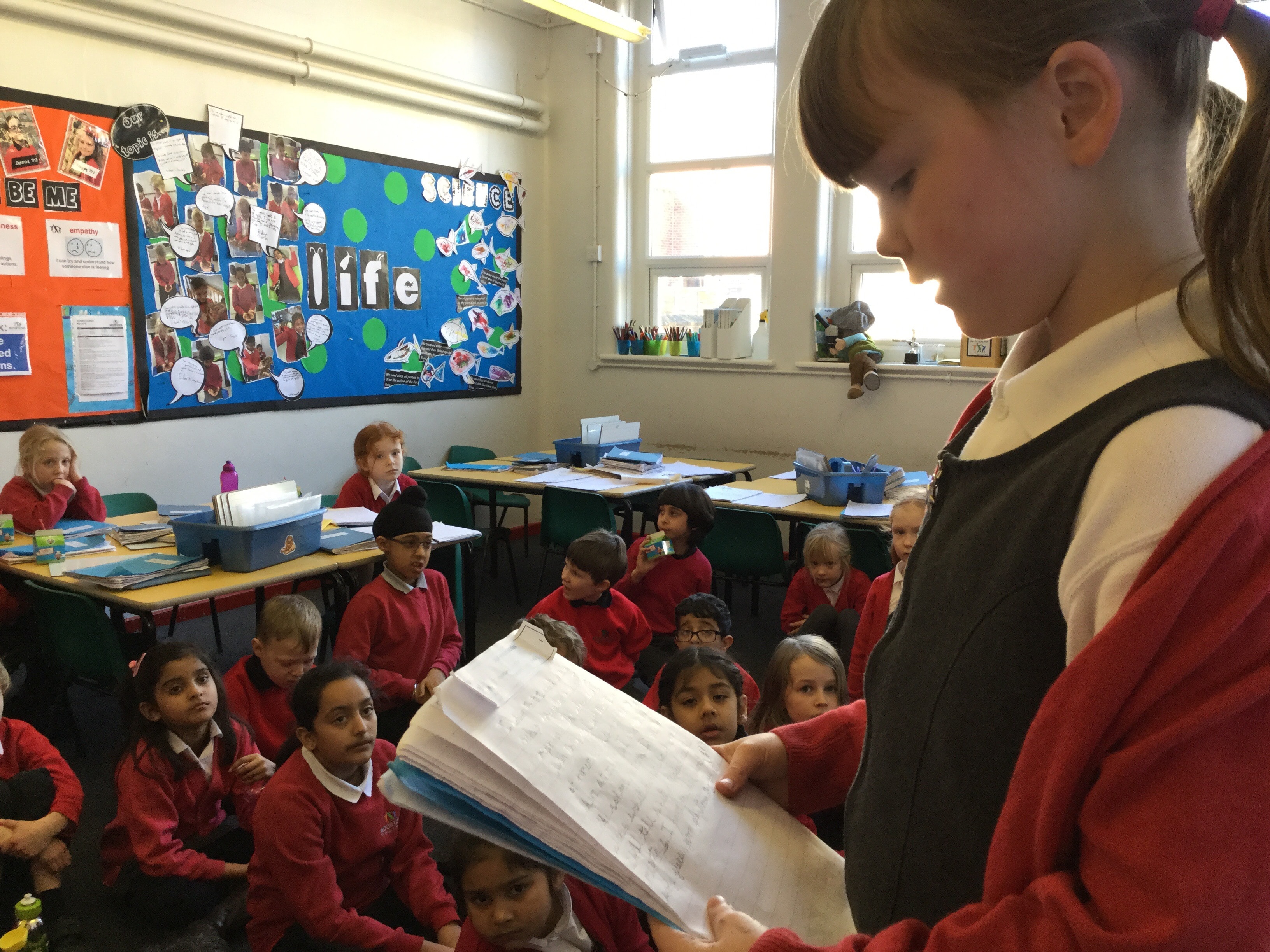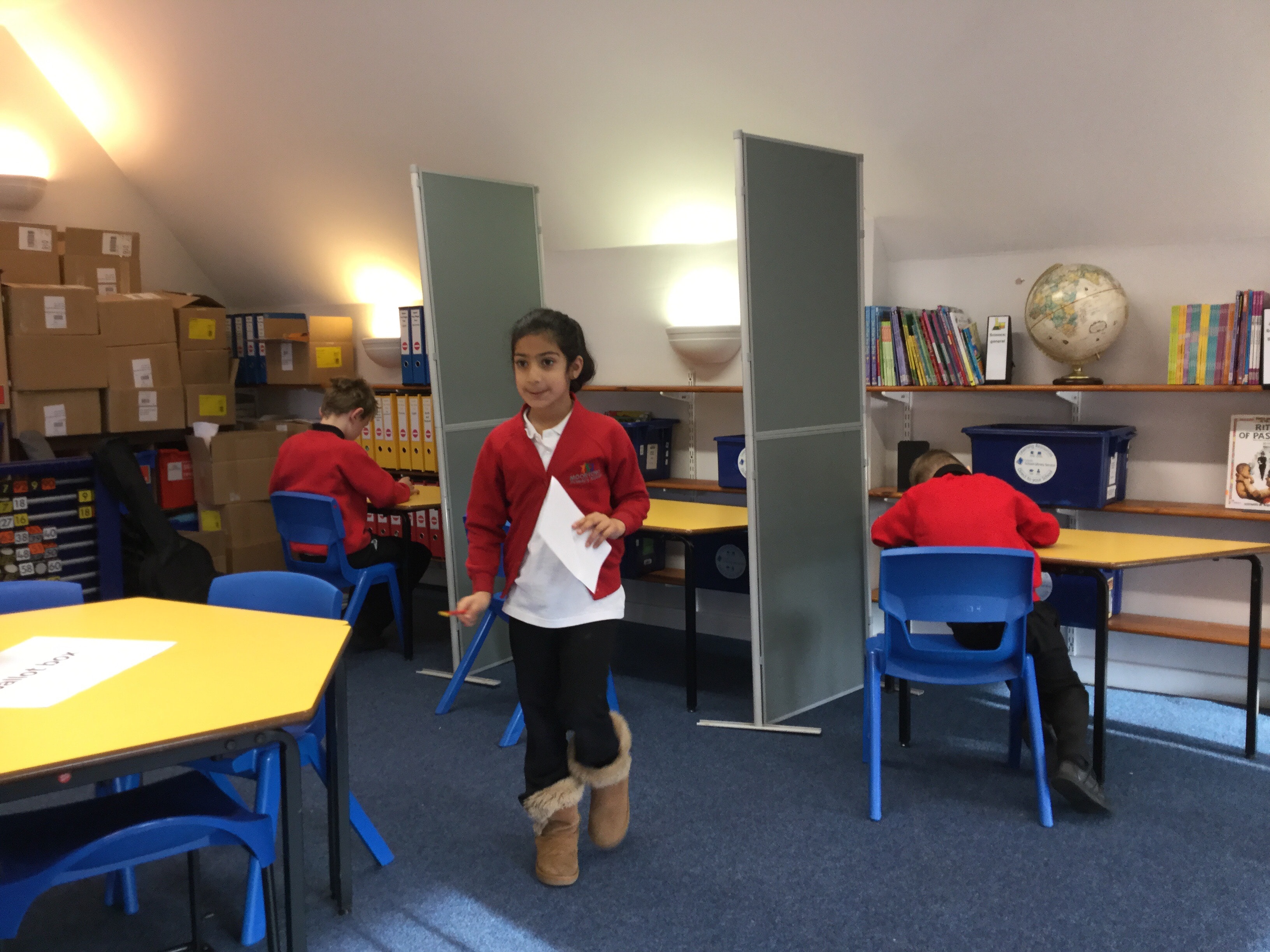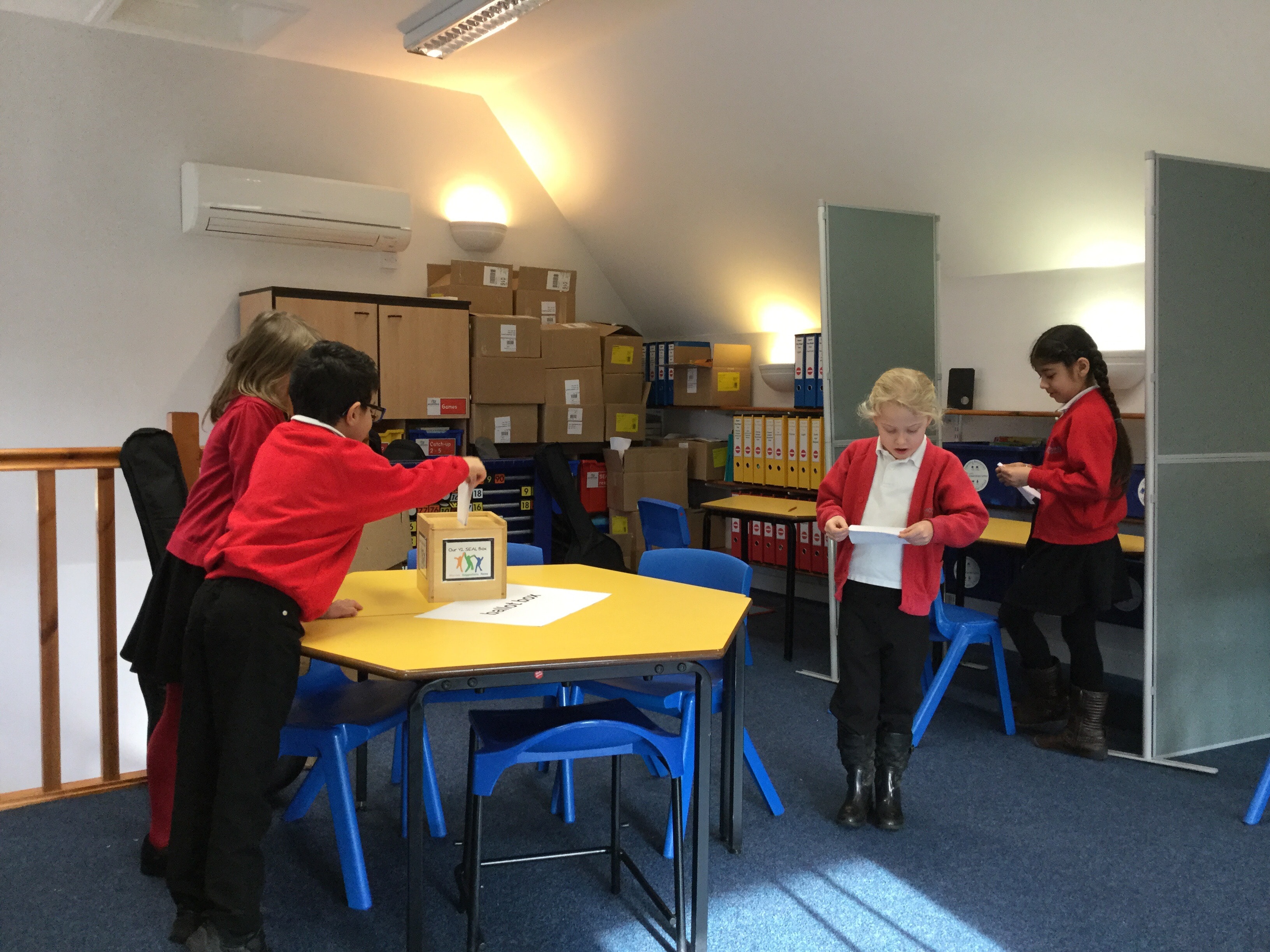A great week back
A big thank you to Year 5 who have all come back after the half term ready and raring to go.
In English, we’ve enjoyed performing, learning, reading and writing poetry this week. As it turns out, lots of us are natural performers or great a getting creative with the pen.
In Maths, we’ve explored decimals and we’ll continue this learning next week by focussing on money.
We all really enjoyed PE this week, particularly returning to our work with the Leeds Beckett students. Grace and Aleena were awarded with this week’s ‘Wow work’ for their great efforts marking each other during a game of basketball. Both of them were exhausted by the end of the lesson.
Next week, we’ve got World Book Day on Thursday where children are invited to come dressed as a character from a book and to bring in their favourite book from home.
Tchoukball returns to Year 6!
This half term, in PE, we will be learning all about Moortown’s favourite sport: tchoukball!
We spent our first lesson yesterday reminding ourselves of the game, its rules and the skills we need to play it. We arranged our thoughts using a spider-diagram as we moved through the lesson (sorry about the shadow!). You could ask your child: Are any of these skills transferable to other sports? Can you discuss each skill in more detail? Is one skill more important than the others? Which skills are you most confident with? Which skills do you feel you need to improve most?
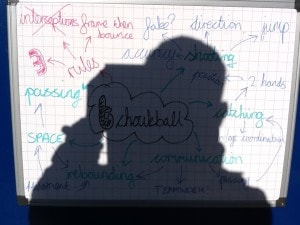
We had lots of fun playing this action-packed game again; here are some action shots:
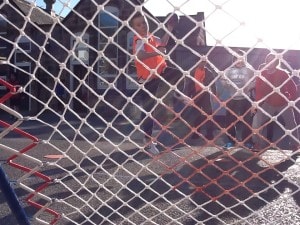
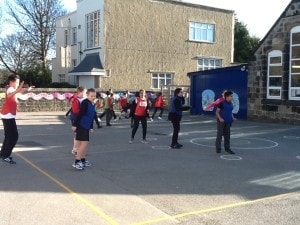
Please remember, children need their PE kit in school on Tuesdays and Fridays – this is their responsibility!
Well done to all
On Monday morning, we noticed a smell of gas from the cellar in school (this is located below the front building of the school).
We followed advice from Transco which was for all children and staff to leave the site. We did this straight away. We have plans in place for situations like this so we were well-prepared; set out in the plan is for people to walk to Highfield Primary.
In the event, Transco arrived really quickly – as a school, we are a priority – and, following checks, advised us that children could return. Children had only just arrived at Highfield.
Through all of this, staff remained calm and concerned, with children’s safety as a priority. In addition, children were well-behaved, as always – it helps that we carry out regular fire drills so they are well-prepared.
Transco has identified the problem and we are getting it fixed as a matter of priority.
World Book Day menu
World Book Day is celebrated on 03 March and during that week (Wednesday 02 March) we will be having a World Book Day Roald Dahl menu for school dinners.

Our next SEAL theme – Getting on
For this half term, our SEAL theme Getting On covers four main aspects:
- developing the social skills of friendship
- working well together in a group
- managing anger
- resolving conflict
A key resource for children to refer to during this theme, and at other times, is Peaceful Problem Solving. This is a useful resource to encourage children to sort out their own problems. You may wish to talk through this with your child(ren).
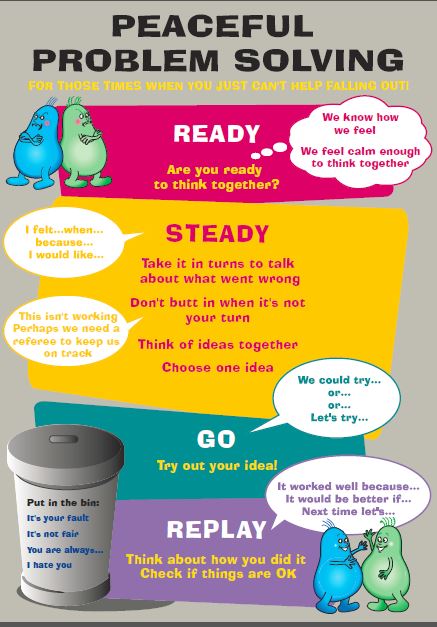
When group work takes place in school, some questions for children to consider are:
- Did everyone take turns?
- Did everyone listen to what other people thought?
- Did each person have chance to tell the group what they thought?
- If people had different ideas could the group reach a compromise?
The key areas of learning throughout this theme are empathy, managing feelings and social skills.
We start our weekly SEAL statements with a focus on manners, I don’t interrupt (with my mouth or with my hand).
Sainsbury’s Sport Relief Mile comes to Leeds
The Sainsbury’s Sport Relief Mile is back – and it’s coming to Leeds.
Yorkshire Sport Foundation will host a Sainsbury’s Sport Relief Mile on Sunday 20 March.
Setting off from Woodhouse Moor, the Yorkshire Sport Foundation Leeds Mile event offers a 1 mile, 3 mile or 6 mile route.


It’s half-term…
…so there’s no homework this week. Enjoy the break – walks to spot the first signs of Spring, restful reading huddled up at home, or whatever else you get up to!
School Council elections
It’s was a busy morning at the Moortown Primary School polling station with all classes taking part in our School Council elections. We’ve had a record number of children choosing to stand as candidates including the majority of the current School Council. Candidates prepared and delivered some great speeches to their class earlier this week in preparation for the election.
With a number of very close results, the winning candidates were announced in our assembly this afternoon.
Well done to our new school councillors – we are sure you will represent your class well.
The first meeting will be held after the half term on 01 March and one of the initial decisions to be made will be how we can support Sport Relief.





Homework review
One of the ways we make sure Moortown Primary has the highest standards is by carrying out lots of regular monitoring and evaluating. This includes:
- observing lessons – a chance to see teaching and learning in action across a whole lesson, or at least most of it
- learning walks – a tour around school to spend about 5 – 10 minutes in each classroom
- book scrutinies – checking pupils’ books, so that we can monitor things like children’s progress across the year and teacher’s marking
- surveys – these include parent surveys in Summer and pupil Feedback Forms twice each year
A lot of the monitoring and evaluating we carry out is by our own staff, but we also like to welcome people from other schools so we know we have an objective opinion. Recently, for example, the headteacher from a local school conducted a learning walk around our school, and then I visited her school to do the same (visiting other schools can be really helpful, too). On Friday, a local authority advisor is visiting to carry out book scrutinies in Maths and English with Mr Wilks and Mr Owen.
Recently, we conducted a review of homework in school. To this this, we gathered together three Homework Books from all the classes and placed them all in a row so we could evaluate progression across the classes. We then looked more closely at progress within each book.
Because homework is something that you have a direct connection with, we thought you might like to hear our conclusions.
What is progress like across all year groups, from Y1 to Y6?
To do this, we looked at whole-school creative homework (on a health theme), November 2015.
Teachers felt there was progress across the year groups. Whilst it didn’t always appear very obvious, closer look at content showed more knowledge and/or skills (eg presentation, grammar, more accurate scientific facts) being demonstrated as children got older, and that this knowledge and/or skills was from a wider range of subjects, so children are making links across subjects more readily.
Teachers noted that older children tend to do more digital homework – it appears that for older children there is a wider range of creative approaches.
Teachers noted that parents were more involved with younger children’s homework, whilst older children carried out their homework more independently.
Some teachers felt there wasn’t a significant difference in terms of progression, but this might stem from the greater independence.
What is progress like within year groups, from September to January?
Teachers looked at the same child(ren)’s homework book, comparing from September to January.
Because of the range of homework activities and the open-ended nature of creative homework tasks, it was often hard to identify in-year progress. There were some good examples of books where handwriting and presentation improved, and some other examples where the length of the homework was increasing over time.
Other aspects which improved over the first half of the year include spelling, grammar, content, creativity.
What is the content of the homework like?
The quality of work produced varied depending on the motivation of the child. Teachers noticed some children whose homework doesn’t reflect their attainment in school – where homework is impressive, there is often evidence of parents’ support without them actually doing the task. (There were some instances when homework was actually of a better standard.)
Teachers felt there was a good balance of tasks and subjects. One teacher noted that English might not feature as often as some subjects, so teachers agreed to be even more aware of this. Another spotted a series of Creative tasks, and so again, teachers agreed to be aware of getting a balance over time.One teacher noted that the importance of quality homework should be emphasised. Our current homework reviews on Wednesdays in class are the best opportunity, but teachers agreed to explore ways to reinforce homework even more.
It is not our policy to provide written feedback (the homework review sessions have been observed by the headteacher and by parents this year, and they provide a good time to review and reflect). However, some teachers do mark homework, and do so very well.
How do we meet the needs of individual pupils?
All teachers were able to describe times when they vary homework tasks to meet the needs of pupils. Sometimes, this might be around a similar learning theme and other times the task might be completely different.
Differentiated tasks appear to be more likely when the homework is Practice Makes Perfect. Teachers agreed to continue to differentiate to meet needs and interests – even for open-ended tasks. Also, they were instructed to be aware of the range of contexts at home and consider alternatives when some tasks might prove difficult / impossible eg research tasks.
